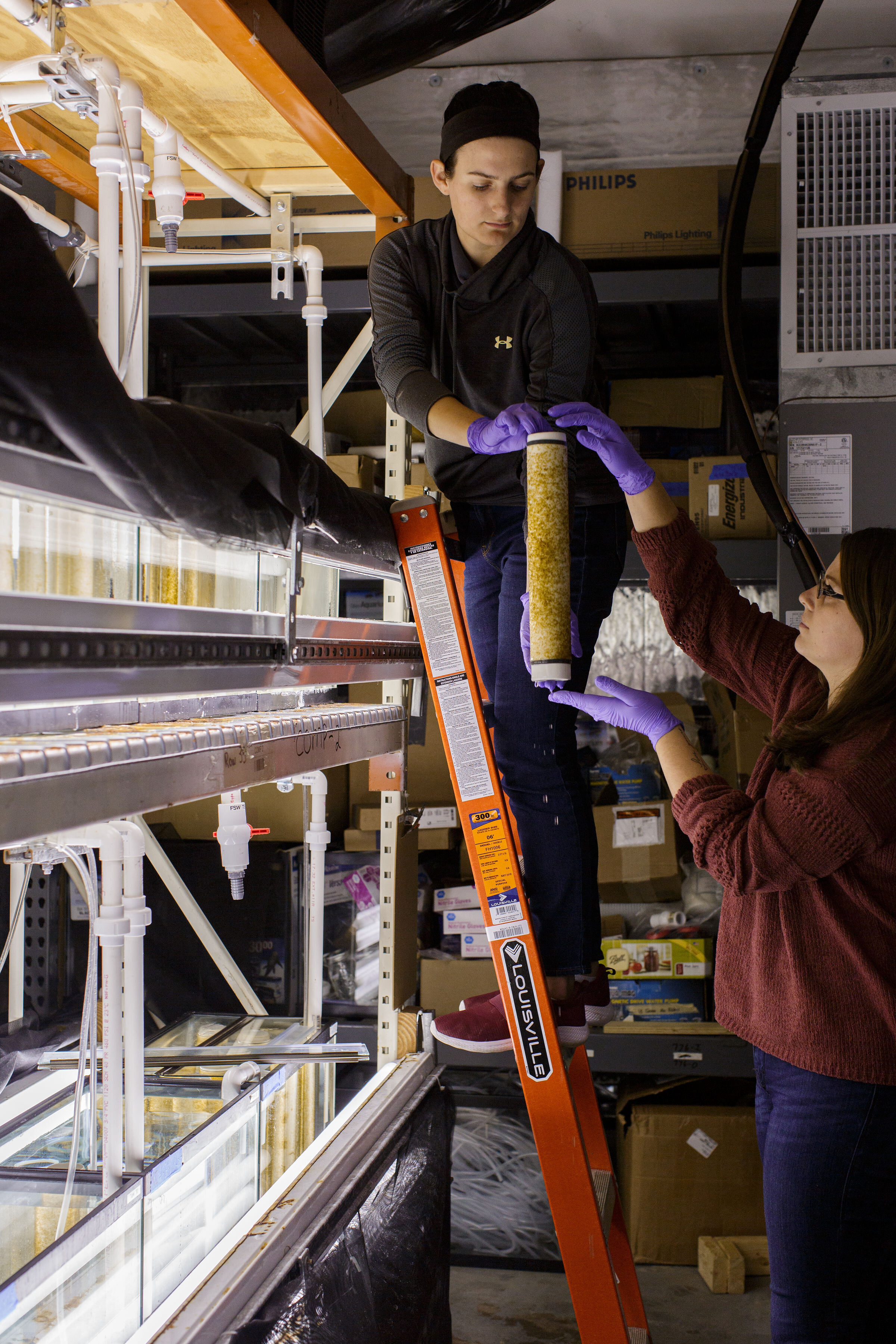Ashley Hamilton & Michelle Stephens
A critical component of the regenerative ocean farming industry is the hatchery, where seaweed seed is grown for distribution to farmers who outplant it on their farms in the fall of each year. Farmers enrolled in GreenWave’s Farmer-in-Training program have access to free seed from GreenWave’s hatchery -- one of the largest in the Northeast! -- to lessen the barrier to entry. The GreenWave Hatchery operates at a commercial scale with research capacity to develop best practices for consistent production, high on-farm yields, cost-effectiveness, and replication. We’ve shared stories of women emerging as leaders in farming and in policy, and women are emerging as leaders in hatchery operations and innovation, too. Ashley Hamilton, GreenWave’s Hatchery Scientist, and Michelle Stephens, GreenWave’s Hatchery Manager, work together to produce the seed for Farmers in Training.
With a Master’s degree in Ecology & Ecosystem Sciences, Ashley is dedicated to improving ocean ecosystem services through restorative species, like oysters and kelp, in and out of the hatchery - she’s currently in the process of establishing her own regenerative ocean farm in coastal Connecticut! This season, Ashley’s research in the hatchery focuses on induced kelp sporing, which can cut costs associated with collecting wild reproductive tissue at the start of the hatchery grow-out process, allow for more control over the seeding process, and potentially lengthen the kelp growing season. She’s also comparing nutrient solutions with the goal of finding the most cost-effective option for helping the kelp seed mature.
Michelle oversees hatchery operations and logistics, and works to improve overall production and efficiency. Michelle is an experienced finfish nursery technician and researcher with a passion for hands-on work with broad, visible, and positive impact. This season, Michelle optimized tank capacity to increase the number of seed spools per tank, engineered a method for tank water levels to self-equalize using siphons and designed a “spoolerator” using affordable materials that can string the whole hatchery in a single workday.
Ashley and Michelle are focused on creating hatchery improvements that will translate to on-farm success for farmers; they track the seed they grow from outplanting through harvest and use the data to help regenerative ocean farmers to farm smarter. For both, this is meaningful work that allows them to use their scientific backgrounds to contribute to and improve an industry with deep environmental and economic impact.
At GreenWave, we’re eager to create space for leaders like Michelle and Ashley to learn, innovate, and improve the industry.

